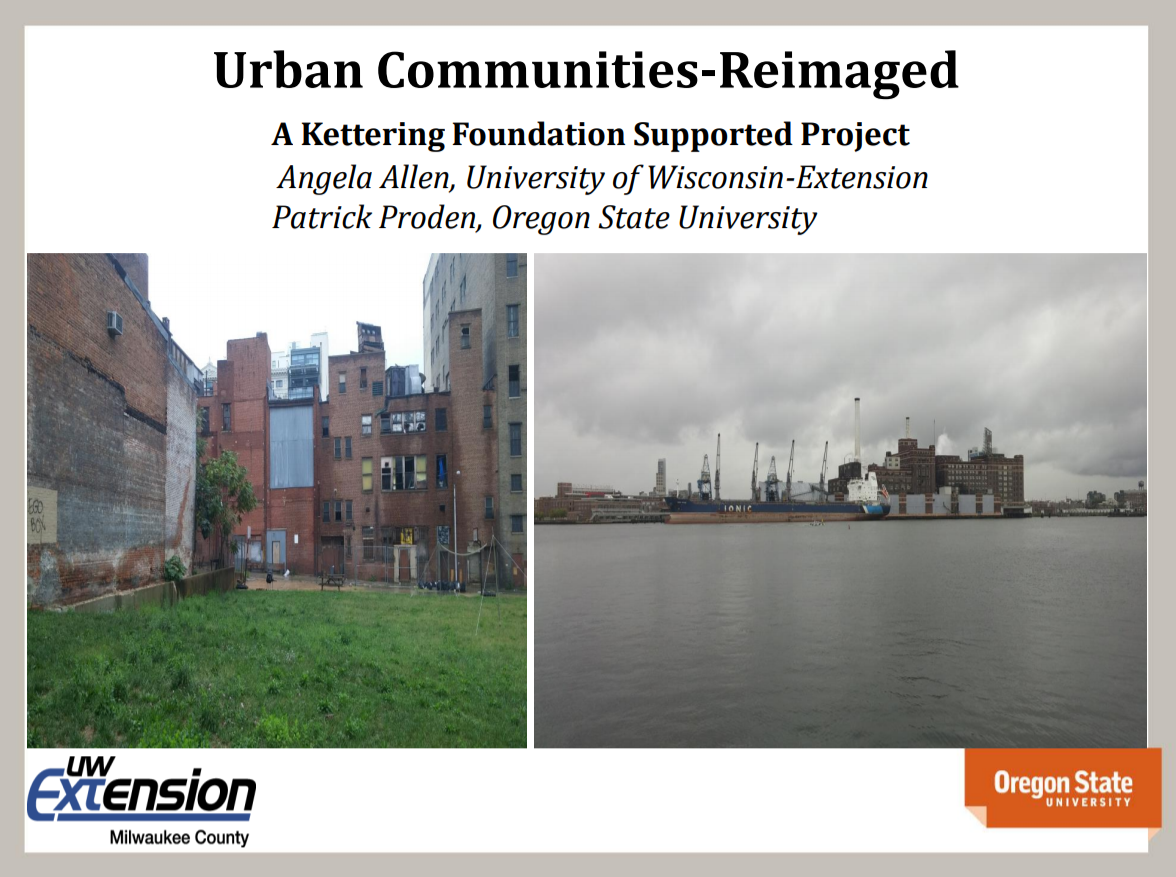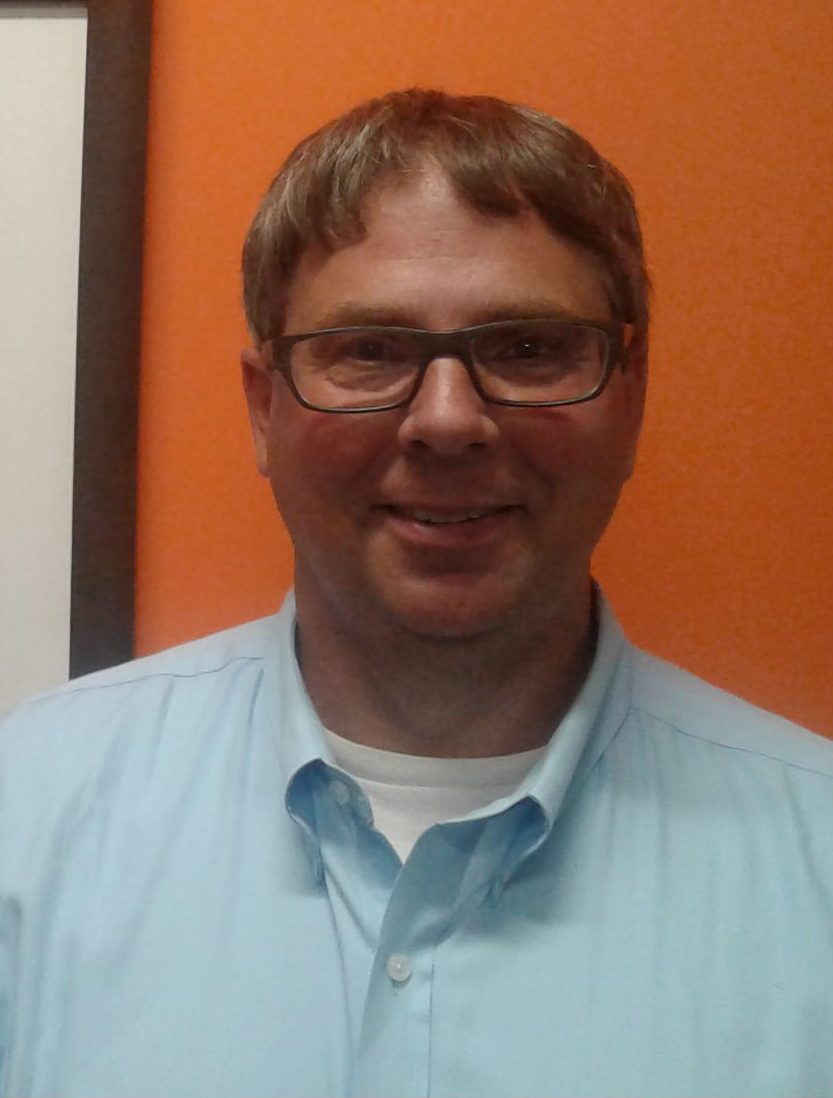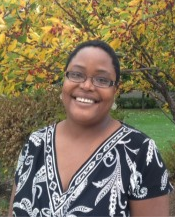Thursday, September 22, 2016 12:00 PM – 1:00 PM PDT.
 Description
Description
Framing issues for public work requires authentic and inclusive participation from many representative voices. A multi-region, multi-state project – launching in October 2016 and funded by the Kettering Foundation – is exploring how the framing process itself can increase citizen participation in the deliberative process among under-represented groups, and help build critical relationships to address social justice issues facing many of our urban communities.
The webinar will explore the role Cooperative Extension has historically played in convening community conversations as a change agent. The presenters, project PI Patrick Proden and Co-PI Angela Allen, will then share their vision of a creative and inclusive framing process, and a deliberative dialogue component, leading to the creation of an urban issues guide which can be utilized in communities across the country to encourage personal and societal transformation. The project seeks to interweave the traditional strengths of the liberal arts, the values of civic inquiry and reflection, and the practical work of sustaining and supporting our communities and ourselves.
Slides
Recording
Presenter Bios
 Patrick Proden
Patrick Proden
Phone: 503-821-1113
Email: patrick.proden@oregonstate.edu
Patrick Proden serves as the Oregon State University Outreach and Engagement Regional Administrator for the Metro region in Portland, Oregon. Prior to his Regional Administrator position, Patrick served as Country Director for the U.S. Peace Corps in Tanzania.
Patrick is currently involved in two civic engagement Kettering Foundation projects as a partner and Oregon State University representative in the ‘Rural Issues’ project and is leading the ‘Urban Communities-Urban Reimagined’ project as PI launched in October, 2016 in partnership with UW-Wisconsin. He serves as Chair to the National Urban Extension Leaders (NUEL) and as an advisory board member for the Western Center for Metropolitan and Applied Research.
Throughout his career, Patrick has held several leadership positions as a Director of International Programs, Director of Operations, and Senior Program Officer, where he provided vision and leadership for high volume, high impact, community development programs both domestically and internationally.
Patrick is a graduate of the University of Wisconsin with a B.S. in Anthropology and earned an M.A in Education from Towson University in Baltimore, Maryland.
In his spare time, Patrick enjoys spending time with his family, traveling, and enjoys outdoor pursuits such as mountain climbing and cycling.
 Angela Allen Ph.D.
Angela Allen Ph.D.
Email: Angela.allen@ces.uwex.edu
Phone: 414-256-4630
Dr. Angela Allen leads the Milwaukee County UW-Extension Community, Natural Resources & Economic Development (CNRED) Program where she is also an educator and a faculty member.
A native of Detroit, Michigan, Dr. Allen is locally and nationally known for developing educational programs which have earned her both the 2016 Wisconsin Extension Environmental and the Community Development Association Outstanding Early Career Award. Education has been central to Angela’s community development work, where she emphasizes local engagement and capacity building, as well as community-institutional partnerships. Her CNRED Educator role utilizes her 20 years of experience, and provides the right environment to support transformative community change.
Dr. Allen worked in community revitalization & engagement consulting work from 2010 to 2013 in Detroit, where she was named as the first district commissioner to the Detroit City Planning Commission. Her efforts helped her community after win a $500,000 ArtPlace America grant in 2014 – the neighborhoods first major grant award in over 25 years.
Dr. Allen is currently developing new programs that integrate strategic planning, collective impact, network weaving, public deliberation, digital storytelling and complex adaptive systems change.
